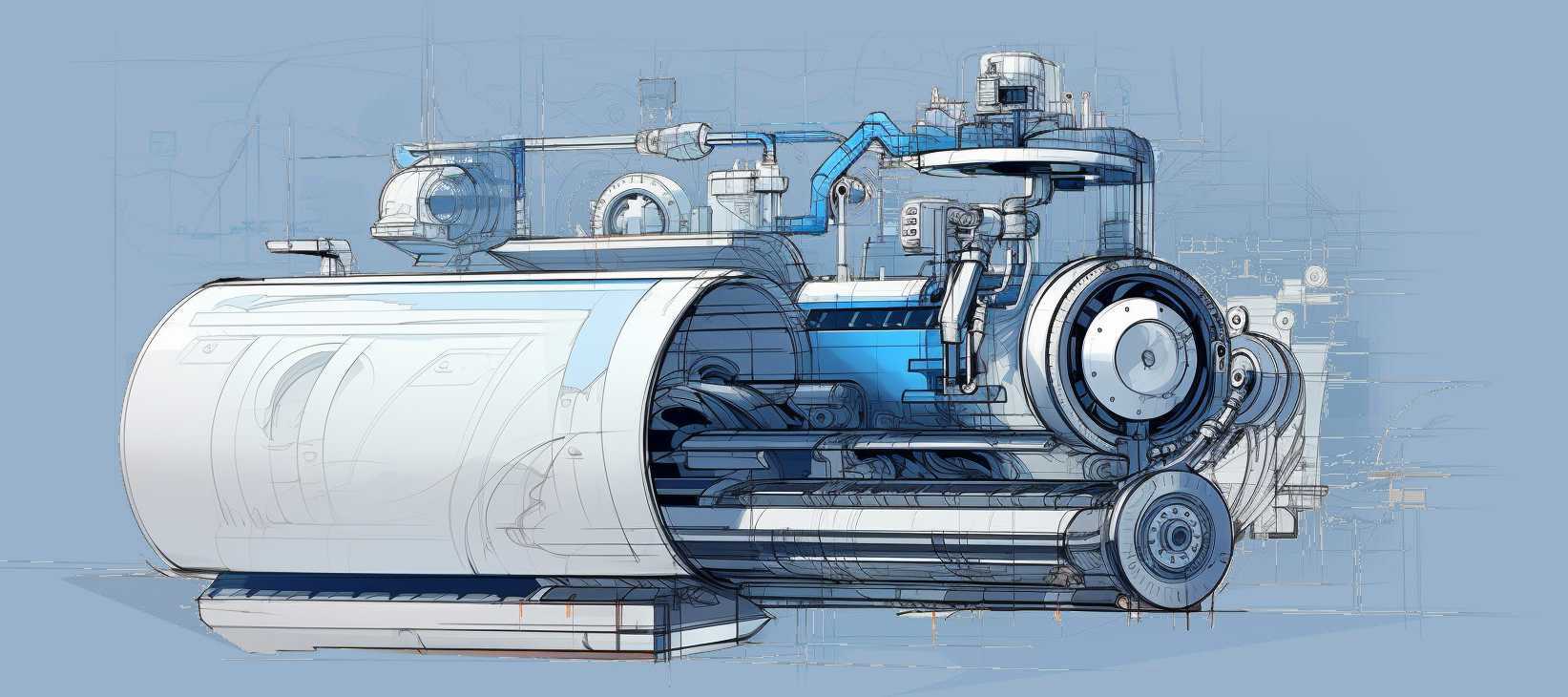Hats off
Hats off to Matt. Despite all the heat in the community at the moment, yesterday he turned up on ThePrimeTime for an interview with ThePrimeagen to talk about the controversy. What’s more, he did that when – clearly – he was pretty exhausted.
Seven things
To my mind, some of the things he said are quite telling or otherwise warrant comment. I want to focus on seven of them.
1. Confusion over ‘WP’
When asked about the recent change in the WordPress Trademark Policy (see WordPress Foundation changes Trademark Policy to criticise WP Engine) and why there had been a change to the previous statement about ‘WP’ not being protected by the trademarks and people being able to use ‘WP’ however they want, he said:
“It still says that. So you can still use WP. You can, like I said, WP beginner, there’s lots of WP plugins. There’s lots of WP things. Just how they [WP Engine] were doing it is an egregious violation of trademarks. And as a trademark holder, you know, Automattic … owns a commercial trademark, they can choose who to go after.”
Let’s be clear. There is no trademark over ‘WP’. Owning (or, actually, having exclusive licensed rights) to ‘WordPress’ trademarks does not legally entitle Automattic to have a crack at anyone it likes who happens to be using ‘WP’. This assertion really muddies the waters.
2. Infringement okay if you’re giving back
Matt said:
“So if someone was using WP in a way that wasn’t, you know, causing harm, or maybe they’re using ‘WP’ or ‘WordPress’, but they’re also giving back to the community. Awesome. By the way WP Engine had the option in the deal I offered them. They could pay a trademark fee or they could pay that in salaries and hourly and hours of contributions or any combination.”
To me this betrays a haphazard approach to trademark enforcement. In substance, on Automattic’s view of what the trademarks enable them to do, it suggests trademark infringement is okay as long as the infringer is giving back to the community.
3. Inconsistency with cease and desist letter
Referring again to WP Engine, Matt said:
“They’ve done so little and been so successful. They built a half a billion a year business. And if you have to ask yourself, how did they build it? It’s partially on the backs of confusion with the WordPress trademark, which is what we’re trying to ask them to stop and why they’re fighting so hard to not do it.”
One can contrast this with the hyperbole in the cease and desist letter from Automattic’s lawyers to WP Engine and Silver Lake:
“WP Engine’s entire business model is predicated on using our Client’s trademarks.”
4. Trademark leveraging
When asked whether there’s a requirement for WP Engine to give back, Matt said:
“What’s a requirement? You know, is there a law that says you have to give back? No. There is a law that says you can’t violate the trademark. So that’s, that’s the law that we’re using to try to encourage them to give back.”
Is this a telling statement? Is this fight truly about trademark infringement, or is trademark law simply be used as a lever or threat to encourage (it might be more accurate to say ‘require’) WP Engine to give back to the community at a level that is acceptable to Automattic?
5. Uncharitable stab at Local
Referring to WP Engine’s provision of Local (which it purchased some time back at part of the Flywheel acquisition), Matt said:
“You know, they have this, they actually have a cool thing called Local, but if you look at Local, it just sells WP Engine hosting. Like, it’s not like … something they do as a charity for the community.”
I used Local before WP Engine bought Flywheel (which developed Local). Local Pro used to be priced at $20 per month. Following the acquisition, WP Engine made Local Pro available to everyone for free. And yes, Local does promote hosting with WP Engine, but its use is not dependent on that and it’s still a really helpful tool.
What has been said of Local could equally be said of Jetpack. They both promote paid offerings.
6. WordPress from WP Engine ‘the same thing you get from all the other hosts’
When talking about being able to get WordPress from other hosts, Matt said:
“What you get from them [WP Engine] is WordPress. It’s, by the way, it’s the same thing you get from all the other hosts. So you can get this from Bluehost or other places. So, um, and I encourage people to explore some of these other hosts because again, WordPress will work better and they all give back to the community.”
This, to me at least, is telling. The statement that ‘what you get from [WP Engine] is WordPress’, and that it’s the same thing you get from the other hosts, is starkly at odds with the post on WordPress.org and repeated assertions on X that ‘WPEngine is not WordPress’ and that what WP Engine provides is a bastardisation of WordPress. Those latter statements seem crafted with trademark infringement arguments in mind. The statements in the interview are, to my mind, more accurate.
As an aside, it also seems unlikely that all other WordPress webhosts in the world give back to the community.
7. Only one trademark licensing deal with other hosts
Matt was asked repeatedly as to whether other WordPress hosts are pursued for, or have, trademark licensing deals. To my eyes and ears, there was no clear answer to that question, other than this:
“So there’s a number of hosts that we recommend on WordPress.org. So there’s, you can assume all of those are very good relations. And I think I’ve said publicly before that Newfold Digital, which owns a bunch of hosts like HostGator, Bluehost, and other things, … they actually have a commercial license to the WordPress trademark, so they’re allowed, just like Automattic is, to use WordPress in a more commercial way. They can call things WordPress plans. They can use WordPress in their advertising, stuff like that.”
According to the updated WordPress Trademark Policy, Newfold is the only sublicensee. Newfold owns Bluehost and Hostgator, but it doesn’t own the other hosts recommended on WordPress.org, namely, Hostinger and DreamHost. According to the WordPress Trademark Policy, these companies are not sublicensees. However, let’s look at how their websites use ‘WordPress’:
- Dreamhost uses terms like ‘Unbeatable WordPress Hosting’, ‘WordPress Plans’, ‘WordPress Basic’, ‘Managed WordPress Experience’, VPS WordPress’, ‘WordPress Hosting Plans’, ‘WordPress Business’, ‘WordPress Specialized’ (support), ‘WooCommerce Hosting’, ‘Make Selling Easier with WooCommerce + DreamPress’. They also use the Woo logo and the WordPress logo, both of which – I understand – are difficult to justify under the descriptive or normative use defence.
- Hostinger uses terms like ‘Managed WordPress Hosting’, ‘Hosting built for WordPress’, ‘Standard WordPress acceleration’, ‘Advanced WordPress acceleration’, and ‘WooCommerce hosting’. They too use the Woo logo and the WordPress logo. And unlike WP Engine, their WooCommerce hosting page does not mention that WooCommerce is an Automattic product, nor that Automattic holds the WooCommerce trademarks.
I make these comments not to point any finger at these hosts, because their language is fairly standard across the WordPress hosting industry, and arguably a good deal of their use falls within descriptive or nominative fair use or could be defended under the laches doctrine. I make them because, in relation to the assertions of trademark infringement, it shows just how inconsistent Automattic is being in singling out WP Engine. Matt has even said this:
“I would say that every other web host in the world we have no beef with, by the way, and that none of them, all of them can, their servers can access WordPress.org servers. WordPress works just fine on every other web host in the world. This is very singular to WP Engine…. I’m fine with all of those. Those things are, they’re all… fine with all of them.”
In addition to Dreamhost and Hostinger, this must include the likes of hosts called ‘WPX’, ‘EasyWP’, ‘WPWebHost’, ‘WPMUDev’, ‘WPHost’, ‘WPCharged Managed WordPress Hosting’, ‘WP Bolt’ (which is using the WordPress logo on its homepage), among many others, and regardless of how they are using ‘WORDPRESS’ or other trademarks owned by or exclusively licensed to Automattic.
The inconsistency here is so stark it’s jawdropping.
Closing comments
As Brian Coords has explained so well, Matt had every right to block WP Engine’s access to WordPress.org. WP Engine has no enforceable right to server-to-server access to WordPress.org and no GPL-related issues arise. And from moral, emotional, and commercial perspectives, Matt may have very good grounds for feeling brassed off. He may also be right to have other concerns. But at the end of the day, and whatever the motive, these facts are also true: Automattic’s largest competitor in the WordPress hosting space is being targetted with assertions of trademark infringement when others using the trademarks in the same or similar ways are not, and is being shut out of WordPress.org, because WP Engine is not – it is said – giving enough back. This is occurring when the GPL does not require that, there are no membership rules that require that, there are no relevant terms of use governing access to WordPress.org (although, Matt, there could be…), and when WP Engine’s cease and desist letter (which is wrongly characterised as an attack on WordPress.org), was in response to a very public attack on it.
Again, I’m not writing all this to support WP Engine, and I remain steadfastly grateful for what Matt and Automattic (along with all contributors) have built. I’m writing it because we need open and considered discussion of what’s going on here. As a WP Engine customer, I am personally affected by what is happening, but my amygdala would be cranking out an anxiety response even if that weren’t the case. Why, because – in my own small way – I too have invested thousands of hours into WordPress. WordPress is responsible for livelihoods, careers, entire industries, and all manner of other things. It has been a technological saviour of sorts since the mid-2000s and it has enabled so many people to do so many things. The world is much better with WordPress in it than without. But for the ecosystem to thrive, we need stability, not division.
Whether what I’m saying is of any assistance, I don’t know. I hope it is, and that the time spent on these posts is not a complete waste of time. But I also hope that the good governance-related suggestions from Joost de Valk are taken seriously, and that Automattic and WP Engine can once again come to co-exist in peace. To my mind, this will not come from insisting on ‘pay up or else’, nor will it come from complete entrenchment on the other side, regardless of the strength or weakness of the trademark infringement assertions. And regardless of what we may think of Matt’s approach, it is clear that it is forcing an evolution of the WordPress ecosystem. It’s naive to think the fallout is only affecting Automattic, WP Engine and its customers. Nuclear fallout is wider than that, and Matt’s sweeping trademark-related statements (which in some cases far exceed the bounds of what trademarks control) will be concerning other commercial players. If the evolution is to have a positive rather than negative outcome, I suggest community members of influence should be allowed to help chart a way forward, or an expert commercial mediator should be brought in to help. That’s my 5 cents’ worth anyway.
Over and out.












